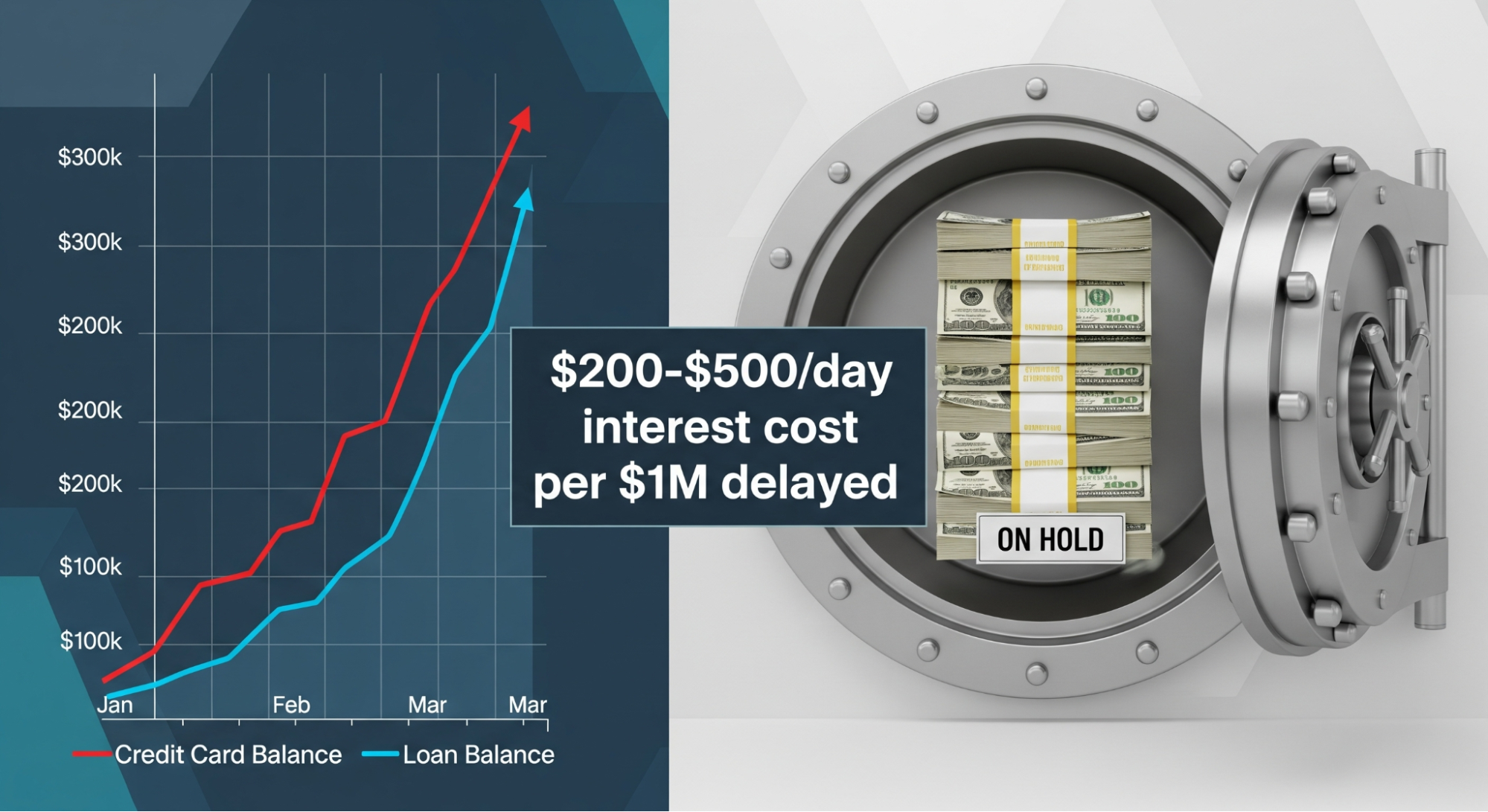
Arjun Gupta
November 14, 2024

TABLE OF CONTENTS
Why wait when there are people eager to e-meet you?
Let's meet, greet, and discuss
The digital age has made secure online transactions essential for businesses of all sizes. While the ease and convenience of e-commerce have driven remarkable growth, this expansion has also heightened the risks of fraud and data breaches. Robust payment security is no longer optional; it's vital for protecting a business's finances and reputation. A single security breach can cause substantial financial losses, irreparable reputational harm, and serious legal consequences. This article examines the crucial role of secure payment solutions, explores the potential repercussions of neglecting them, details the process of implementing effective security systems, and emphasizes the significant advantages they offer.
The consequences of failing to prioritize secure payment solutions are multifaceted and far-reaching, impacting both the business itself and its customers. The financial repercussions alone can be staggering.
“According to the 2023 Verizon Data Breach Investigations Report, nearly 80% of data breaches involved a financial motive. This translates to billions of dollars lost annually globally due to various forms of cybercrime targeting financial transactions.”
For businesses, the financial losses extend beyond direct theft. Chargebacks, the process by which customers dispute a transaction, are significantly more likely to occur if security measures are inadequate. The costs associated with handling chargebacks, including processing fees and lost revenue, can quickly accumulate. Furthermore, regulatory fines for non-compliance with data protection standards, such as PCI DSS (Payment Card Industry Data Security Standard), can reach hundreds of thousands of dollars.
“For example, a business failing to meet PCI DSS requirements could face fines ranging from $5,000 to $100,000 per incident, depending on the severity and the business's size.”
Beyond the financial impacts, neglecting security leads to significant reputational damage. A public data breach can severely erode customer trust, leading to a decline in sales, customer churn, and negative publicity. The damage to a company's image can be long-lasting, making it difficult to recover lost ground. Customers are becoming increasingly aware of the importance of data security and are more likely to patronize businesses with demonstrable commitments to protecting their information.
“A study by IBM found that the average cost of a data breach in 2023 was $4.45 million. This cost includes incident response, lost business, legal fees, and regulatory penalties.”
Consumers also bear the brunt of insecure payment systems. Data breaches often lead to identity theft, a crime with devastating personal and financial consequences. Victims may face significant financial losses, lengthy recovery periods, and severe emotional distress. The impact on consumer confidence and trust in online transactions is also substantial.
Implementing effective secure payment solutions is a multi-step process requiring careful planning and execution. Here's a comprehensive guide:
1. Needs Assessment and Risk Analysis: Begin by thoroughly assessing your business's specific needs. Consider the types of payments you will accept (credit cards, debit cards, mobile payments, digital wallets, etc.), your anticipated transaction volume, and the sensitivity of the data you handle. Conduct a thorough risk assessment to identify potential vulnerabilities in your current systems and evaluate the potential impact of a data breach. This may involve collaborating with security professionals to perform a vulnerability scan and penetration testing.
2. Selection and Implementation of Technologies: Choose a reputable payment gateway that meets your needs and offers robust security features. Look for gateways that comply with industry standards like PCI DSS and offer features like encryption, tokenization, and fraud detection. REDA Pay offers a comprehensive suite of features designed to address these needs, including advanced encryption, tokenization, and real-time fraud monitoring. Encryption, using protocols like TLS/SSL, scrambles data during transmission, rendering it unreadable to unauthorized parties. Tokenization replaces sensitive data (e.g., credit card numbers) with non-sensitive tokens, minimizing the risk of data exposure. Fraud detection systems analyze transaction patterns to identify and flag potentially fraudulent activities.
3. Secure Payment Policy and Procedures: Develop a comprehensive security policy that outlines your organization's approach to data security and payment processing. This policy should cover aspects such as data encryption, access control, employee training, and incident response. Conduct regular training sessions for your employees to educate them on security best practices and procedures. This training should emphasize the importance of password security, phishing awareness, and handling sensitive customer information.
4. Compliance and Monitoring: Ensure your systems are compliant with relevant regulations, including PCI DSS if you handle credit card data. Regularly monitor your systems for security vulnerabilities and promptly apply any necessary updates and patches. Stay informed about emerging security threats and trends to proactively protect your systems from evolving risks. Consider employing a security information and event management (SIEM) system to aggregate and analyze security logs from various sources, providing a centralized view of your security posture. REDA Pay provides tools and resources to assist with compliance monitoring and reporting.
5. Ongoing Maintenance and Improvement: Security is an ongoing process, not a one-time event. Regularly review and update your security policies and procedures. Provide refresher training courses for your employees. Stay current with the latest security technologies and upgrade your systems accordingly. Continuously monitor your systems for any unusual activity, and be prepared to respond swiftly and effectively to any security incidents.
The investment in secure payment solutions yields significant returns, benefiting both the business and its customers. From a business perspective, robust security measures directly impact the bottom line. By reducing fraud and chargebacks, businesses save substantial amounts of money. They also enhance customer trust and loyalty, leading to increased sales and customer retention. A strong security posture improves brand reputation, attracting new customers and strengthening the company's position in the market. Compliance with regulations avoids hefty fines and legal issues. Furthermore, secure payment systems streamline operations, improving efficiency and reducing administrative burdens. REDA Pay's streamlined platform contributes to increased operational efficiency.
For customers, the benefits are equally compelling. Secure payment solutions provide a safe and trustworthy environment for online transactions, fostering confidence and encouraging greater online engagement. The reduced risk of fraud and identity theft offers customers peace of mind, protecting them from financial losses and identity compromise. Secure and seamless payment processes enhance the overall customer experience, leading to greater satisfaction and increased likelihood of repeat business.
Given the constantly shifting landscape of online threats, secure payment systems are no longer optional - they're fundamental to a business's long-term viability and success. The repercussions of insufficient security are substantial, affecting not only profitability but also brand image, customer confidence, and legal adherence. Implementing effective secure payment solutions demands meticulous planning, careful selection of appropriate technologies, the creation of strong security policies, and ongoing monitoring and enhancement. However, the significant advantages far surpass the expenses, resulting in a strong return on investment via reduced fraud, improved customer loyalty, a better brand reputation, regulatory compliance, and increased operational efficiency. Prioritizing secure payment processing allows businesses to safeguard against financial disaster, foster customer trust, and flourish in our increasingly digital marketplace.










.jpg)
.avif)


.png)
.png)




